| Article ID | Journal | Published Year | Pages | File Type |
|---|---|---|---|---|
| 2011731 | Pharmacological Reports | 2012 | 9 Pages |
Concentration-and time-dependent effects of two antiepileptic drugs (AEDs), levetiracetam (LEV) and valproic acid (VPA), on proliferation, cytotoxicity and expression of cell cycle regulatory genes were investigated in a human ovarian cancer cell line, OVCAR-3. Cells were cultured with VPA or LEV, at concentrations between 100 μM and 10 mM. Cell proliferation was determined by alamarBlue and BrdU incorporation assays; cytotoxic effects by tetrazolium hydroxide (XTT), acid phosphatase (AP) and lactate dehydrogenase (LDH) assays. Expression of cell cycle regulatory genes was determined by real-time PCR. Exposure to VPA caused a concentration- and time-dependent decrease in cell proliferation (alamarBlue and BrdU incorporation assays), cytotoxic effects above 2.5 mM (XTT and AP assays) and modulated expression of genes primarily responsible for cell cycle arrest in G1 phase. Cell proliferation was unaffected by exposure to LEV for 24 h and 120 h (alamarBlue assay), but increased when exposed to LEV for 72 h and 168 h, at concentrations from 250 μM to 1 mM. The BrdU incorporation assay showed no effect of LEV on cell proliferation. LEV was cytotoxic at higher concentrations (AP assay), but modulation in expression of cell cycle regulatory genes was not observed. Changes in LDH release were not observed with either AED. In summary, VPA apparently decreased cell proliferation by down-regulating genes responsible for transition from G1 to S phase and up-regulating genes responsible for G1 phase arrest, which suggest its potential as an anticancer drug. LEV does not exhibit such action.
